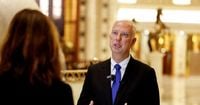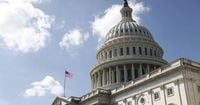In a significant diplomatic development, Kirill Dmitriev, a senior Russian negotiator and head of the Russian Direct Investment Fund (RDIF), is set to visit Washington this week for talks aimed at strengthening U.S.-Russia relations and addressing the ongoing conflict in Ukraine. This marks the first visit by a high-ranking Russian official to the U.S. capital since the onset of the Russian war in Ukraine in 2022. Dmitriev, known as a close advisor to President Vladimir Putin, previously engaged in discussions in Riyadh regarding potential resolutions to the war.
According to CNN, the visit will see Dmitriev meet with key figures in President Donald Trump's administration, including Steve Bannon and Stephen Miller. This meeting comes in the wake of Trump's return to the White House in January, suggesting a thawing of relations between Moscow and Washington. The U.S. State Department has refrained from commenting on individual visa cases, citing confidentiality laws, while sources indicate that temporary sanctions against Dmitriev may have been lifted to facilitate his entry into the U.S.
In February, Dmitriev accompanied senior Russian officials to Saudi Arabia to discuss ending the war in Ukraine. His involvement in these negotiations highlights the ongoing dialogue between the two nations. However, Trump's recent comments indicate a level of frustration with Putin, particularly regarding the latter's criticism of Ukrainian President Volodymyr Zelensky. Trump has threatened to impose additional sanctions on Russia if significant progress is not made in negotiations.
In a recent interview, Trump expressed his annoyance with Putin's actions, stating, "I’m angry with Putin," and hinted at the possibility of secondary tariffs on countries purchasing Russian oil if negotiations do not advance. Furthermore, 50 bipartisan senators are backing a legislative proposal that would impose severe sanctions on Russia and its allies, including a staggering 500% tariff on imports from nations that buy Russian oil or gas. This legislative effort aims to pressure Putin into serious negotiations for a ceasefire in Ukraine.
Senator Richard Blumenthal, a Democrat from Connecticut and a sponsor of the bill, emphasized the need for a fair resolution for Ukraine, stating, "We hope for peace, but it must be just for Ukraine. The absence of a ceasefire is due to Putin stalling, hoping for battlefield gains while distracting President Trump and the American public." The proposed sanctions would not only target energy imports but also restrict American financial institutions from investing in entities linked to the Russian government.
The legislation, if passed, would provide Trump with additional leverage in his negotiations with Russia. It is designed to strengthen existing sanctions that have been in place for several years, potentially creating tension with major energy consumers like India and China, who rely on Russian oil. Notably, the bill allows for exemptions if it serves U.S. national security interests.
In a broader context, Russian officials have indicated a willingness to explore trade opportunities in Russia contingent upon a successful resolution to the war. Trump's stance has shifted slightly, as he expressed a desire for fair dealings with Putin, stating, "I want to make sure he fulfills his commitments, and I believe he will." However, American officials remain skeptical about the sincerity of Russia's intentions in the negotiations.
As the diplomatic landscape evolves, the U.S. continues to navigate complex relationships with both Russia and Ukraine. While Trump’s administration seeks to establish dialogue with Moscow, the prospect of renewed sanctions looms over the discussions, reflecting the delicate balance of power and the urgency for a resolution to the ongoing conflict.
In summary, Dmitriev's visit to Washington represents a pivotal moment in U.S.-Russia relations, with potential implications for the future of the war in Ukraine. The ongoing negotiations highlight the challenges of diplomacy in a time of conflict, as both nations grapple with their respective interests and the broader geopolitical landscape.





